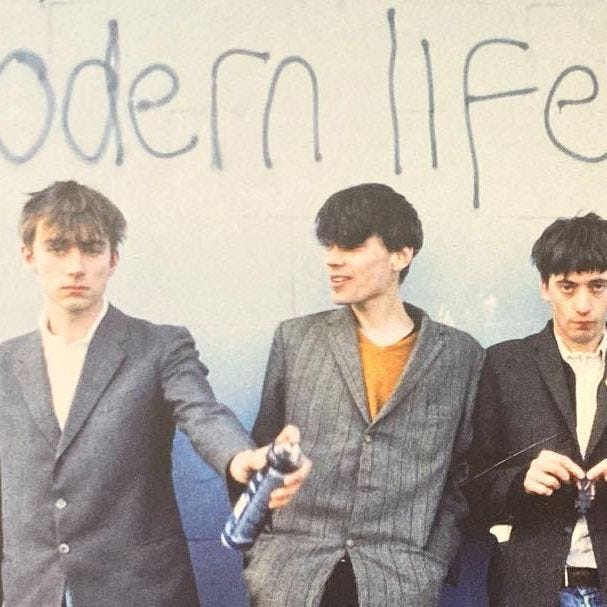It’s a two playlist week!
This week’s main playlist is YOUNG FOLKS: TWEE INDIE 2004-2009 – cute and cozy, childlike whimsy, and vintage vibes as twee aesthetics entered the mainstream in the second half of the 00s. This one features Belle & Sebastian, Camera Obscura, The Decemberists, Feist, She & Him, Nellie McKay, Au Revoir Simone, Sufjan Stevens, and a lot of artists you may not have thought about in a long time. [Spotify | Apple | YouTube]
This week’s second bonus playlist is THIS WAS SUMMER 2013, taking you back to a time not too long ago when we ran things, and things didn’t run we. The peak Millennial culture era? [Spotify | Apple | YouTube]
Also I’d like to point you to BOB DYLAN UNIVERSE, a Spotify playlist curated by one of my all-time favorite critics Douglas Wolk. Douglas ran with the “Universe” format and concept that I’ve been working with for a while and applied it to Bob Dylan’s catalog, something I wouldn’t have tried because it’s such an intimidating undertaking. It’s incredible work, and you can find his annotated track listing here.
What’s Been On Your Mind
Rahill “Gone Astray”
I did not listen to Rahill’s debut solo album Flowers At Your Feet until after I had made my Late 90s Sophisticate playlist, a collection of songs that exemplified the largely chill and eclectic music made from a DJ mindset that signaled an upscale crate-digging tastefulness at the end of the 20th century. Rahill, intentionally or not, has made a record that fits into that aesthetic perfectly, embodying a few variations on the sound over the course of 14 tracks. Sometimes it’s in the drum programming, sometimes it’s in the chords and arrangement, sometimes it’s in the vocal affect, but it’s always in her combination of excellent taste and low-key song craft.
It was unusually difficult to choose one song to feature here but I had to go with “Gone Astray” if just because it’s not enough that she made a song that feels remarkably similar to Broadcast circa The Noise Made By People, but that if this was in fact a Broadcast song it would be among their best. This one reminds me specifically of “You Can Fall” and I love the way it takes that thick atmosphere of ominous mysterious and muted resentment in that music and makes that the emotional baseline for a song about knowing that your relationship is about to end, but not really knowing the why of it yet.
Buy it from Bandcamp.
Memories Erased From My Mind
Cornelius “Sparks”
Cornelius is known for his early music as a crucial part of the colorful Shibuya-kei scene in the 1990s – colorful, kitschy, artfully composed music that was basically a direct result of a vibrant crate-digging subculture. He hasn’t been tremendously prolific through his career but he has changed a lot of over time, to the point that his new single “Sparks” sounds like the kind of indie rock that his own music had served as an alternative to in the late 90s and early 00s. Well, at least on a surface level. “Sparks” is a rock song, but one arranged with Cornelius’ taste for precision and audio novelty. Chords and notes seem to ping-pong diagonally across the mix, or blink out momentarily like a string of lights. There’s a strong melancholy permeating the track, particularly noticeable in the vocal harmonies, but every surface seems like it’s been sterilized as it to keep the sadness from infecting anyone else.
Buy it from Amazon.
Found My Transcendent
Blur “The Narcissist”
I like that Gorillaz has become so successful in both commercial and creative terms for Damon Albarn that when he occassionally circles back to make Blur records he puts his focus on what’s special about the other three guys in that band, clearly appreciative of their distinctive dynamic and chemistry. One project allows for artistic freedom and endless novelty, and the other is about a bond between four players going back over 30 years. Albarn has it figured out.
“The Narcissist,” the first single from the group’s forthcoming The Ballad of Darren,” feels vaguely like music from different parts of the Blur catalog, but it’s not like any particular song. It’s got the plaintive tone and direct lyrics of the 13 era, a lean arrangement that recalls the less overtly Britpop-ish songs from Modern Life Is Rubbish, and the contrasting vocal with Graham Coxon reminds me of both “Country House” and “M.O.R.” The song feels a lot more sentimental than the old stuff, with Albarn singing about breaking addictive and destructive patterns with a note of real hope in his voice. A lot of his work is an expression of cynicism and pessimism and on this song it sounds as though he’s trying to push beyond that. I don’t think his hopes are too high here, but “connect us to love and keep us peaceful for a while” is a much brighter take on humanity than, say, “The Universal.”
Buy it from Amazon.
LINKS LINKS LINKS LINKS LINKS
• Tina Turner was a pioneer of rock, a survivor with one of the best comeback stories of all time, and set the template for a lot of modern pop. She passed away this week at 83, and I recommend these tributes to her written by Amanda Petrusich, Caryn Rose, and Rob Sheffield.
• I’ve been enjoying a lot of Flea’s interviews with musicians on his This Little Light podcast but I especially liked his conversation this week with Stewart Copeland, the virtuoso drummer best known for his work in The Police. Copeland’s life and family is wild – he and both his brothers were all crucial figures in the new wave explosion of the early 80s in totally different ways, and his father was a CIA spook who Stewart casually mentions installed a dictator or two. The part of this I liked most is when he talks about the fraught interpersonal dynamics of The Police, and how long it took them to realize why they were so hard on each other.







